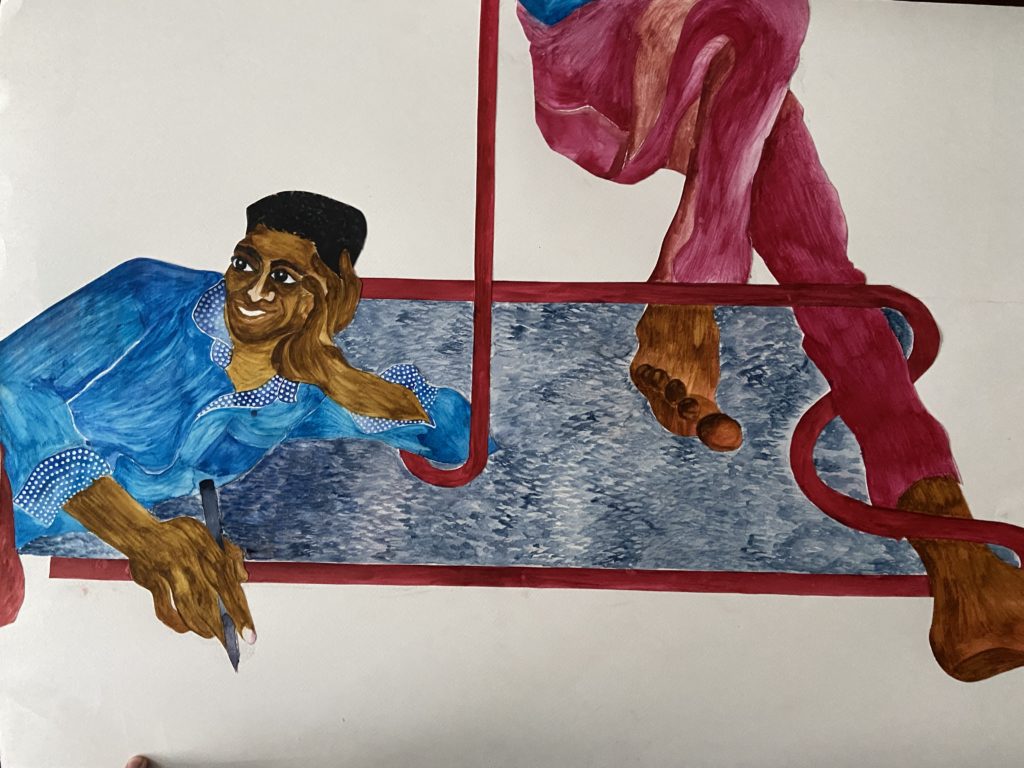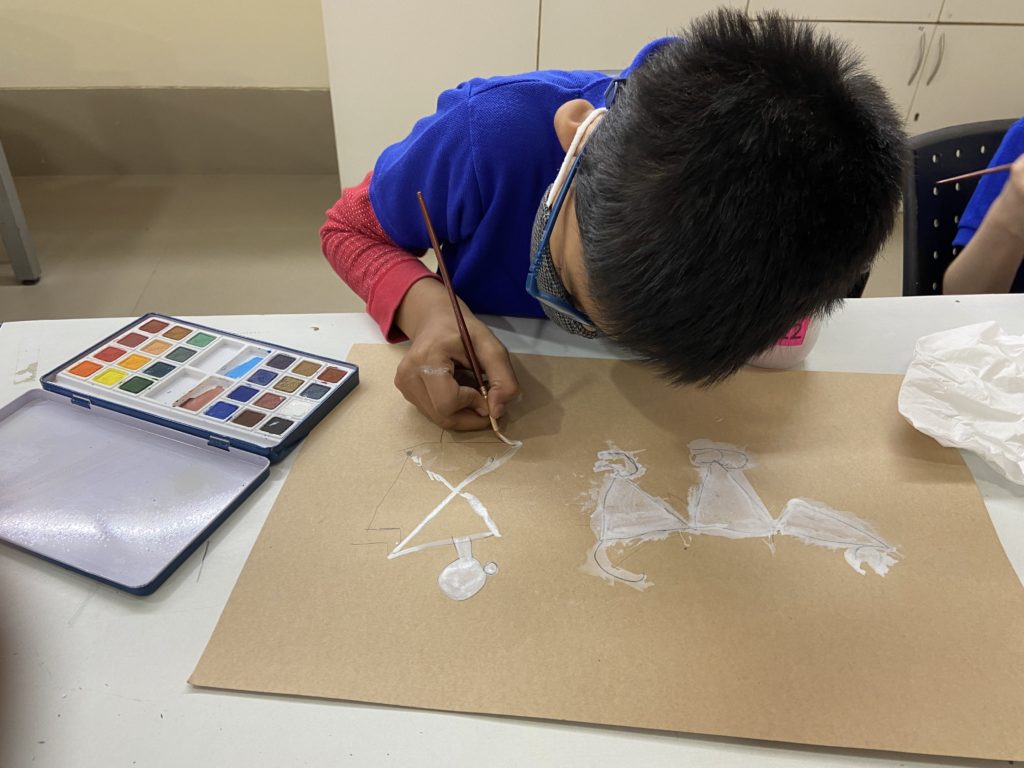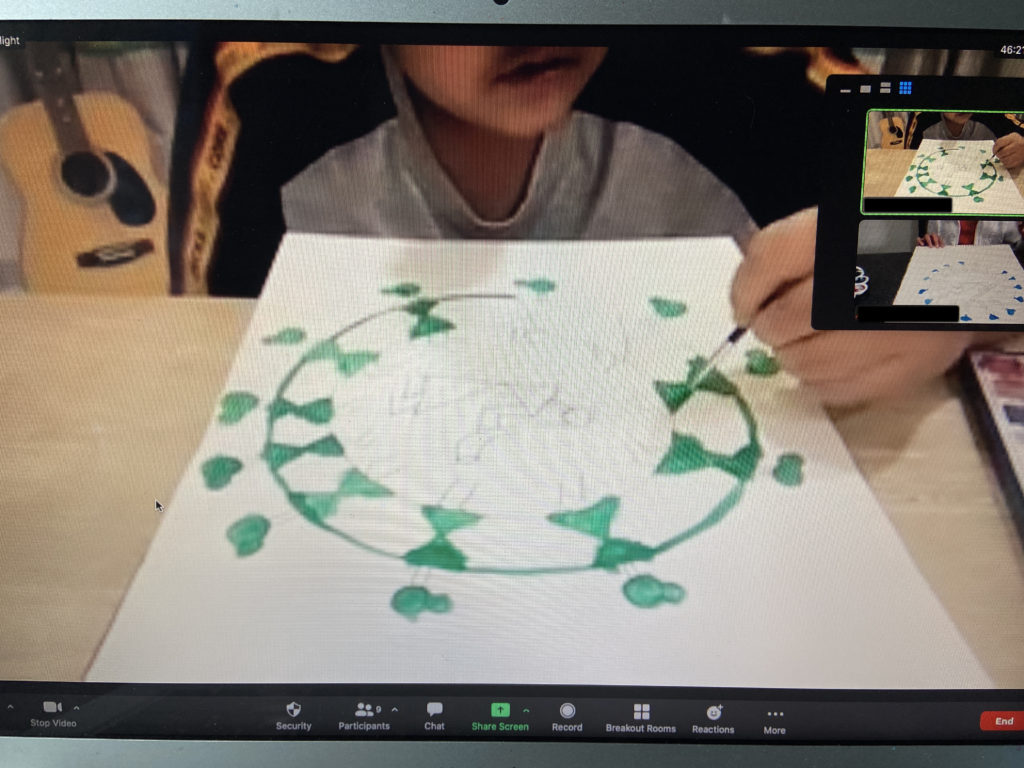It was so great to reconnect with Abishek and hear more about his art and teaching practices. He participated in one of our Artist Talk sessions through the Teaching Artists Lounge last summer and I was so inspired by the way he wove teaching and artmaking together in that brief talk that I wanted to hear more. He shared wonderful advice for working with students of all abilities and adjusting his own expectations as a teacher during constantly shifting situations as a result of the pandemic. We got into what student-centered teaching can look like. He also talked about his inspiration as an artist and the project he’s currently working on surrounding men and mental health in India.
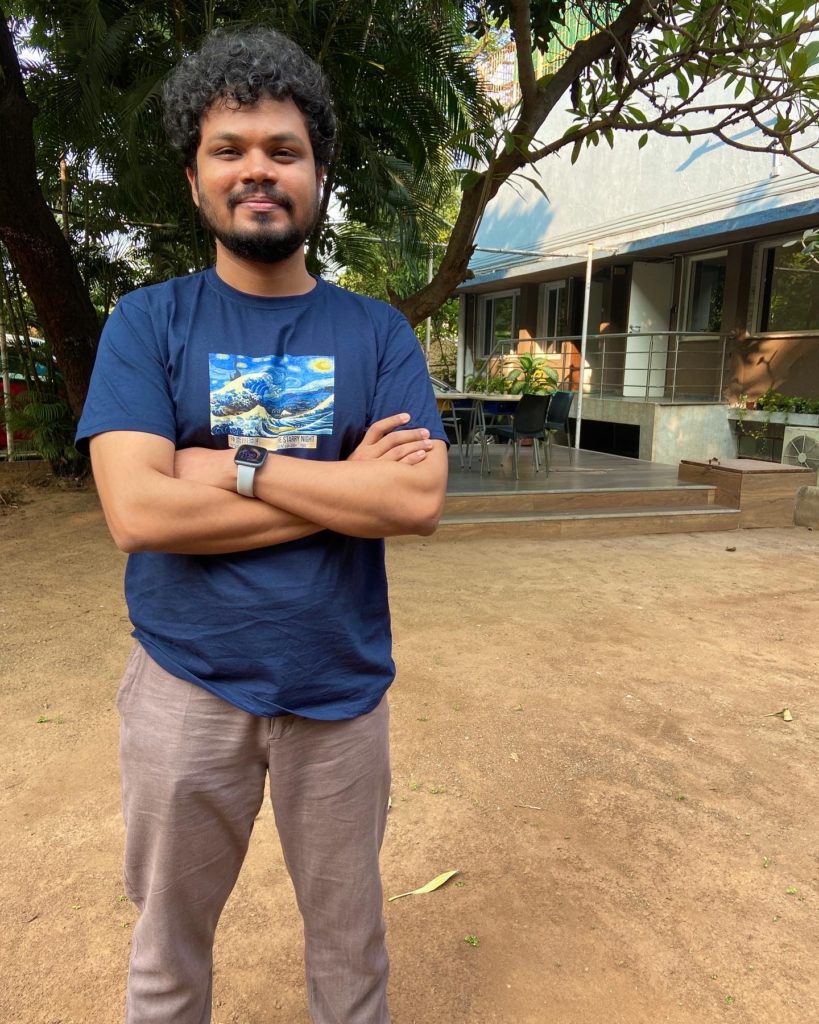
Mumbai-based artist and educator, Abhishek has been associated with the arts for more than a decade. Depending on the role, be it artist, teacher, researcher, or administrator, he uses a combination of creativity, information, research, and persuasion to achieve personal and professional results. Abhishek received an MA in Art Education from Boston University. His scholarly interests are grounded in Critical and Culturally responsive pedagogy; with research interests in arts integration, Indigenous curriculum, art for special educational needs, and place-based education.
As a visual artist, his artistic practice is inclined at investigating themes and issues of mental health, culture, and gender within the local and global context. Currently, he serves as the Arts program coordinator and teacher at The Gateway School of Mumbai, a not-for-profit school committed to empowering children with disabilities. Based on the critical strategies of Visual art, his teaching focuses on exploratory and inquiry-based art-making processes in-studio and design courses. Abhishek has been a conference speaker and has taught workshops at festivals, galleries, and museums in India and Brazil. The Tata Education and Development Trust and The Keshavlal Bodani Education Foundation are the granting organizations that supported his academic and cultural work.
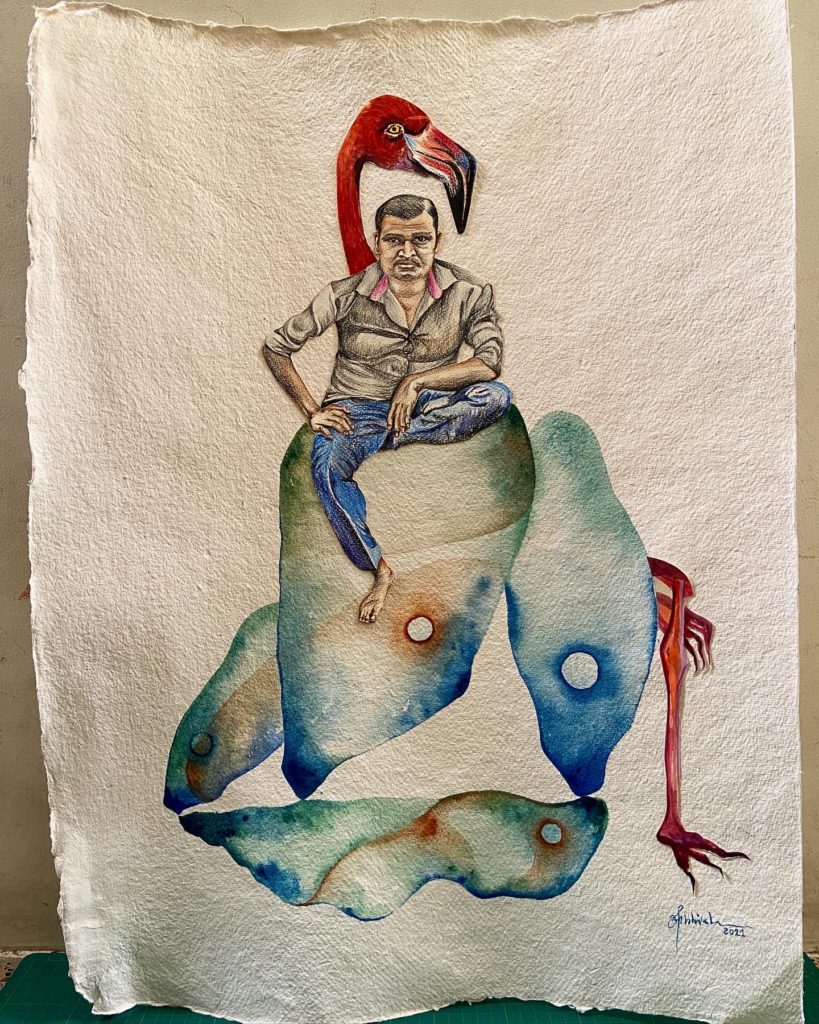
Links:
